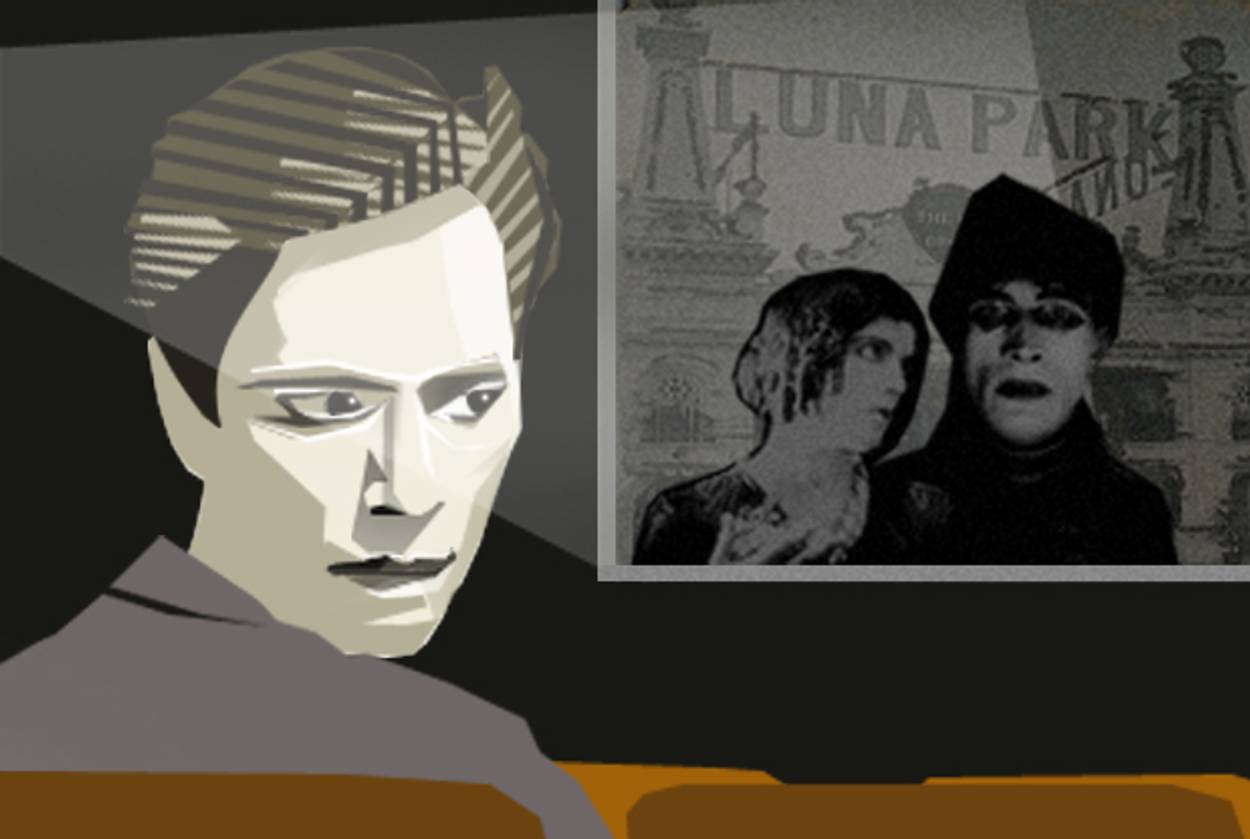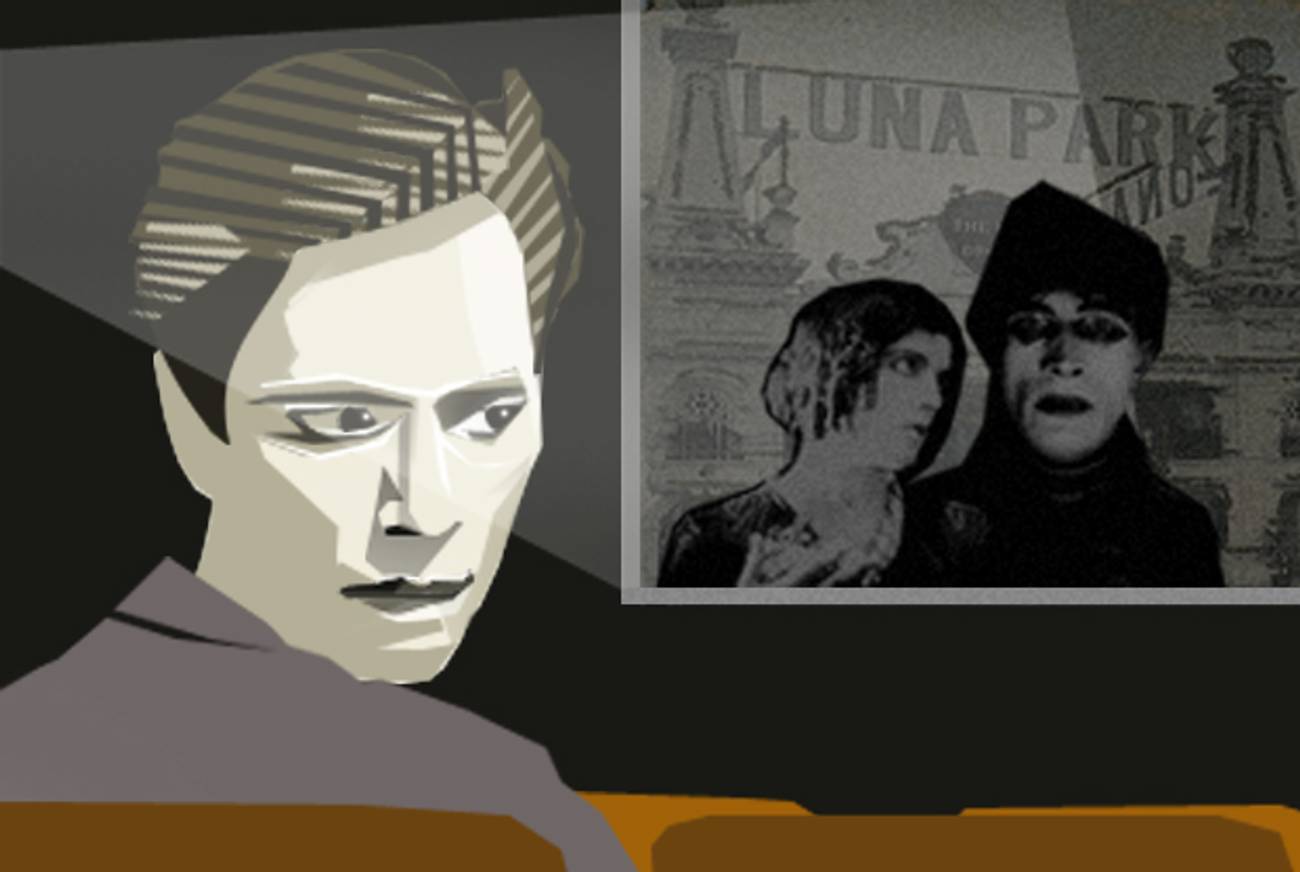How Delmore Schwartz Saved My Life
Or at least kept Lou Reed from punching me at a dinner party




Several years ago at a birthday dinner for my friend the novelist A.M. Homes, I was seated next to the musician Laurie Anderson. I don’t remember what we talked about, certainly not experimental music which I know almost nothing about. All I remember was that she was hugely charming and I was trying to keep up. It was fun. At some point I had the distinct impression that to onlookers we must have seemed like two figures from a silent movie, with our large physical gestures—tilting our heads back to laugh, etc.—indicating to all but the emotionally mute how obviously fascinated we were by the conversation. In the audience, or rather among the other party guests, was Anderson’s boyfriend at the time, and now husband, Lou Reed. Toward the end of the dinner it was clear he’d had enough of this movie because he leaned across the table and, while keeping his eyes fixed on me, asked her, “who the f— is this guy?”
I was very sorry I hadn’t had a chance to speak with him before during dinner, and now here was our introduction, with my nose on the verge of ruining Homes’ birthday party by bleeding on the white tablecloth at Il Cantinori after Lou Reed had punched it. He had been one of my culture heroes since childhood and I was pretty sure he needed to hear that. I wanted to ask him about Greenwich Village in the 60s, where I’d grown up and where he’d first become famous with the Velvet Underground. I wondered if he ever went into that pet store on St. Mark’s place with piranhas. Mostly of course I wanted to ask him about his teacher at Syracuse University where the Brooklyn-born Reed enrolled in 1960, Delmore Schwartz.
Reed has never hidden his affection for Schwartz, dedicating several songs to his late mentor, and in 2012 he wrote a prose poem, “O, Delmore how I miss you,” as an introduction to a new edition of Schwartz’s book, In Dreams Begin Responsibilities. Schwartz’s standing as a poet has been somewhat eclipsed by his dramatic, erratic, and finally tragic life story. Also, the fact that Schwartz was a first-rate literary critic and his most famous work is a short story, the title piece from In Dreams, has hardly helped seal his place among the masters of the lyric poem, but Schwartz’s poetry is his real legacy, which he handed down to Lou Reed, among others.
Walter Benjamin wrote of Charles Baudelaire’s poetry that, “The delight of the city-dweller is not so much love at first sight as love at last sight.” What he meant was that modern urban life, with its abundance of possibilities, was nonetheless paradoxically fragile. In a flash you could walk by your true love or miss your path in life, and you’d never have the chance to recover it, lost amidst the din of 19th-century Paris. By the time this lyric mode moves to 20th-century New York, it becomes even more delicate, refracted through the sensibility of the children of immigrants.
The American poets who captured this paradox best—Schwartz and other Brooklyn-born bards, like David Schubert and of a later generation, Hugh Seidman—constitute one of our most important and lasting literary traditions. They are the Brooklyn Jewish Troubadours. In a sense, these are Walt Whitman’s children, the generations he reached out to in “Crossing Brooklyn Ferry,” adolescents caught between the deprivations their parents invariably suffered in the old world and the new world of opportunity and bounty.
The Brooklyn Jewish Troubadours are haunted by the specter of impermanence—everything is on the verge of changing, likely for the worst. As Schwartz writes in “In the Slight Ripple, The Mind Perceives the Heart,” “night comes soon,/With its cold mountains, with desolation,/unless Love builds its city.” There is a direct line then between Schwartz and Lou Reed. Consider Reed’s “Perfect Day,” where with the small events of urban life—drinking sangria in the park, feeding animals at the zoo, a movie, too—love builds its city against impermanence, a fortress made of papier mache.
“You’re going to reap just what you sow,” Reed sings in “Perfect Day,” and finally I turn to face the music. “Mr. Reed,” I say, “can you tell me about Delmore Schwartz?” His face softens, his eyes get large and his body breathes expansively. “Delmore Schwartz,” he says, “is everything.”
101 Great Jewish Books: In Dreams Become Responsibilies, Delmore Schwartz, 1938
Related: Lou Reed’s Rabbi
Dreamer
Growing Pains
Lee Smith is the author of The Permanent Coup: How Enemies Foreign and Domestic Targeted the American President (2020).